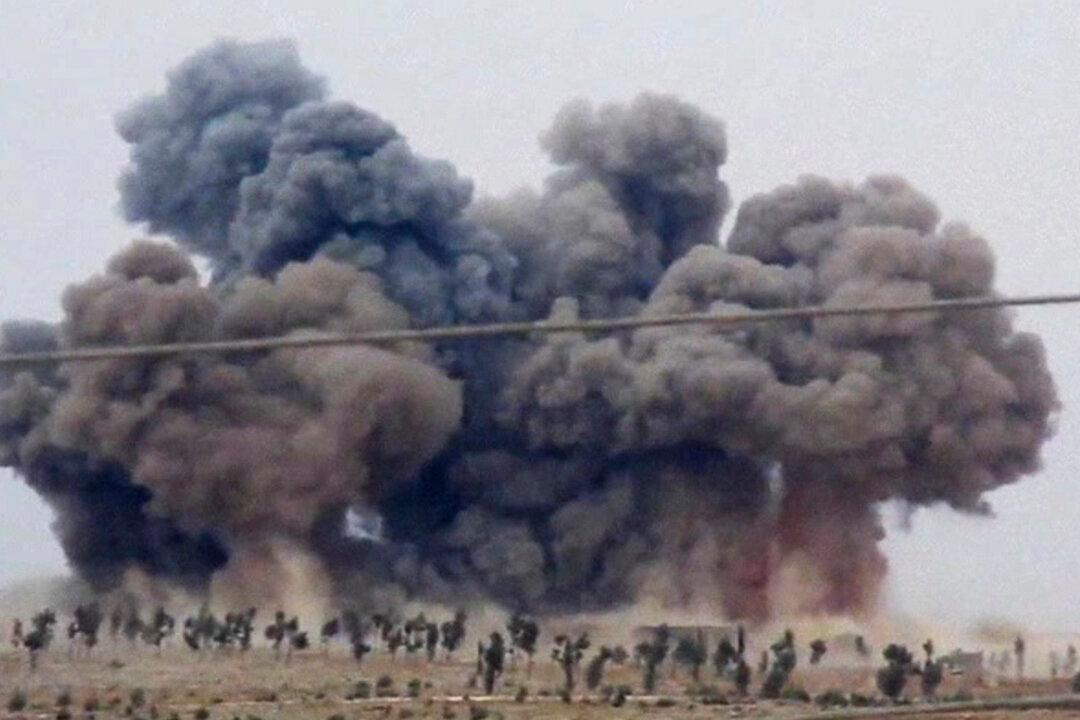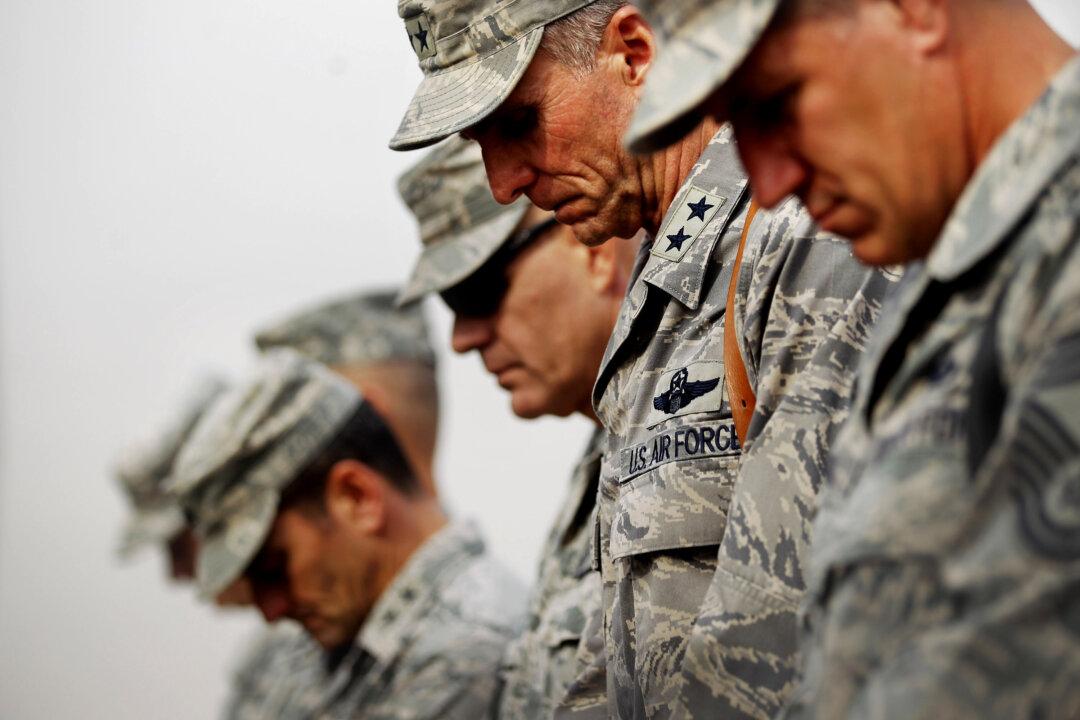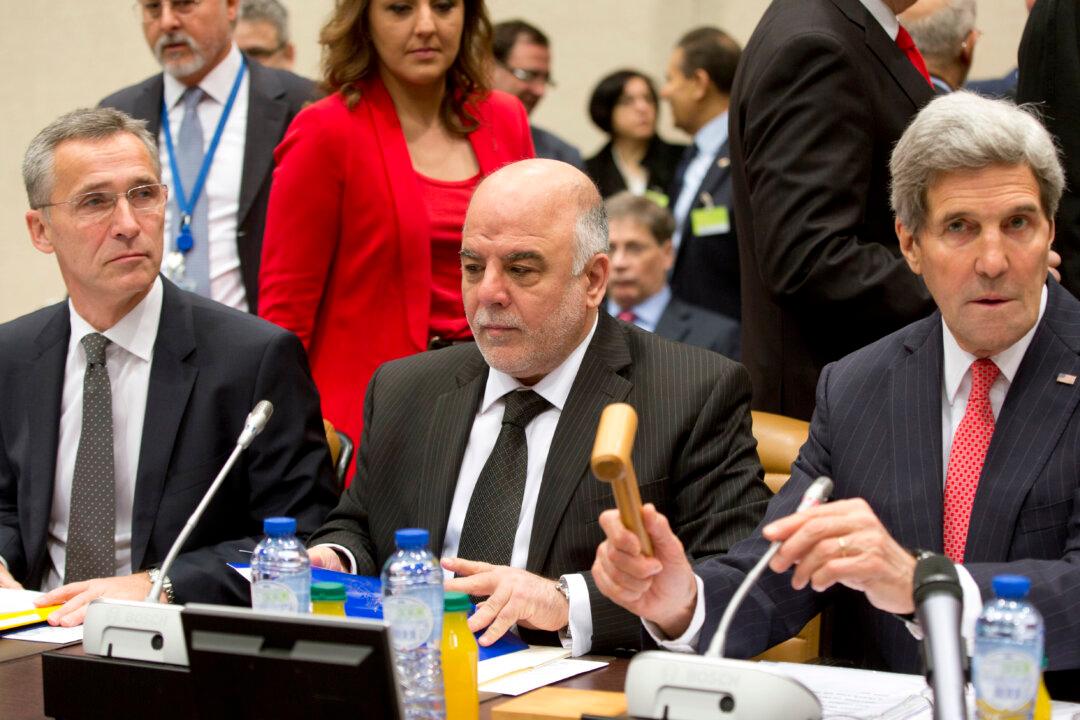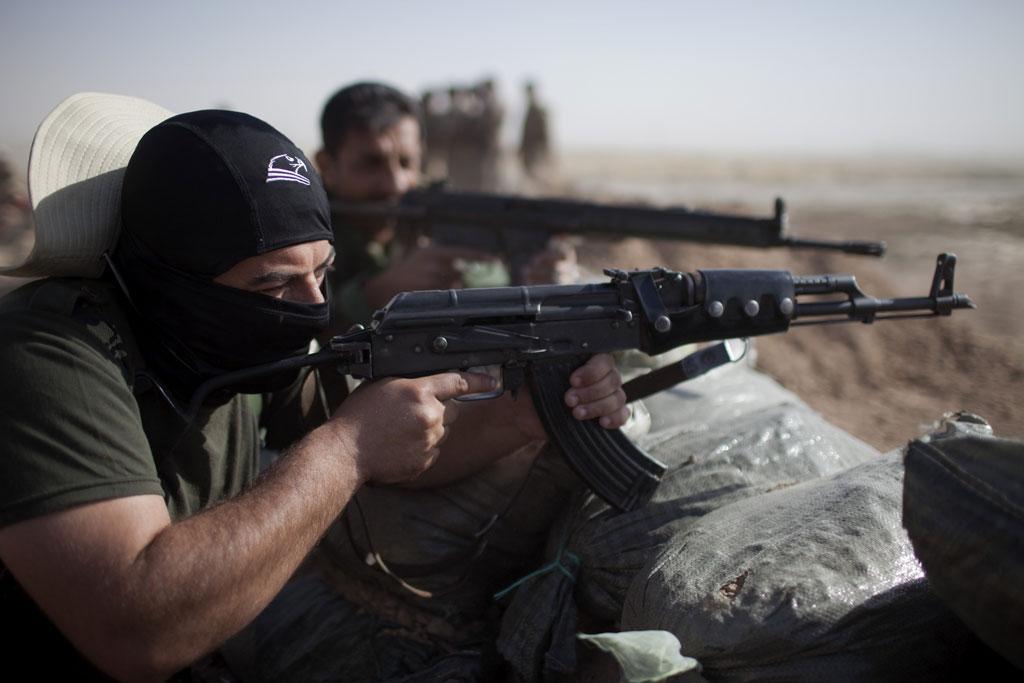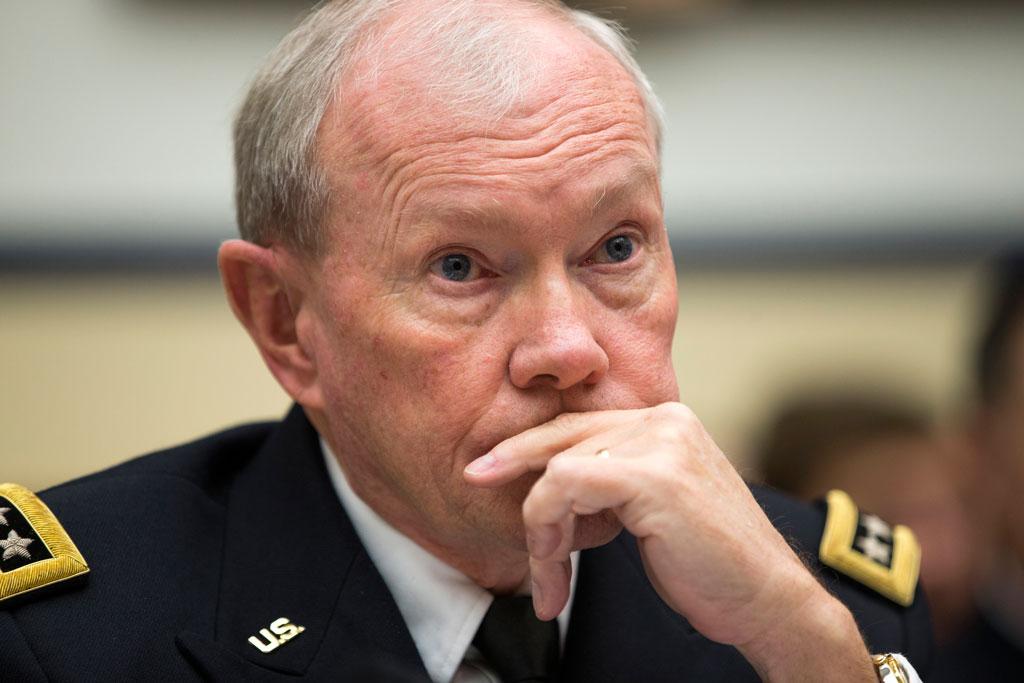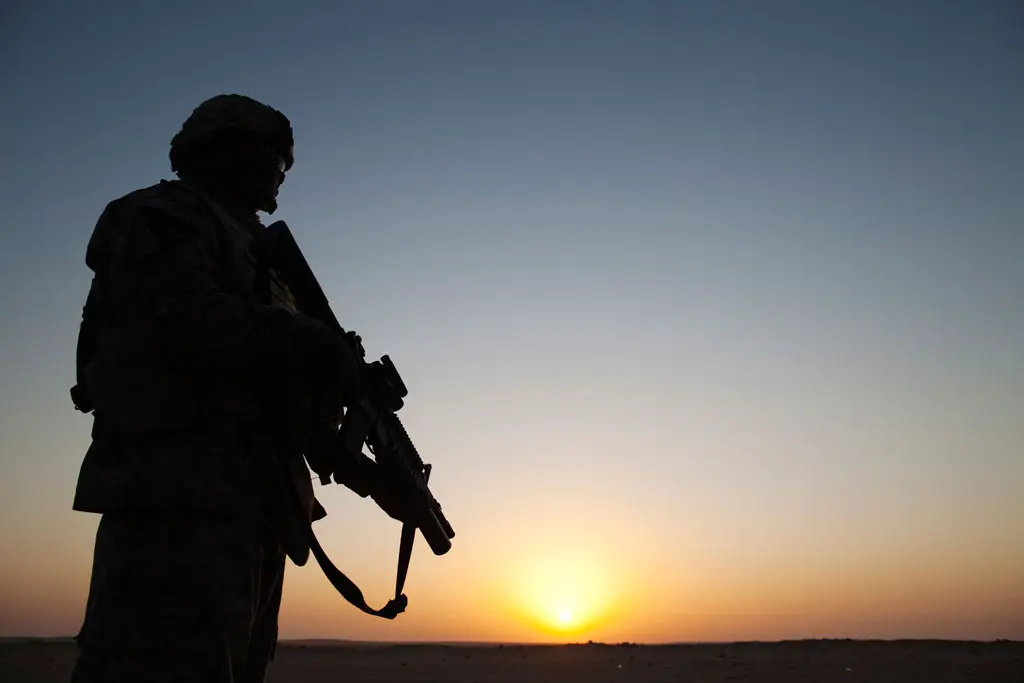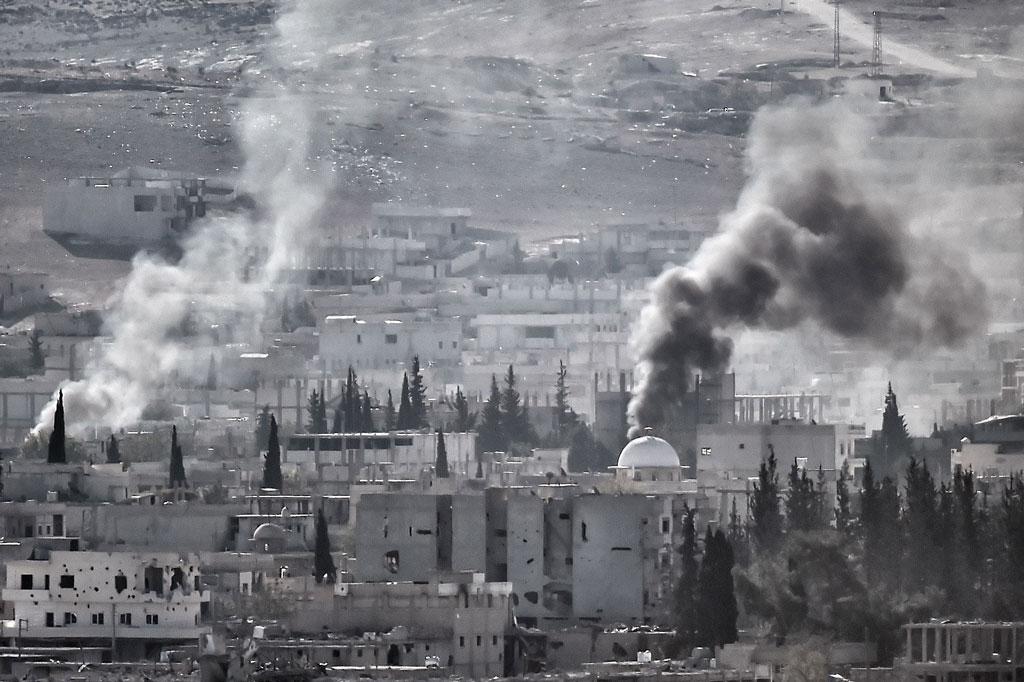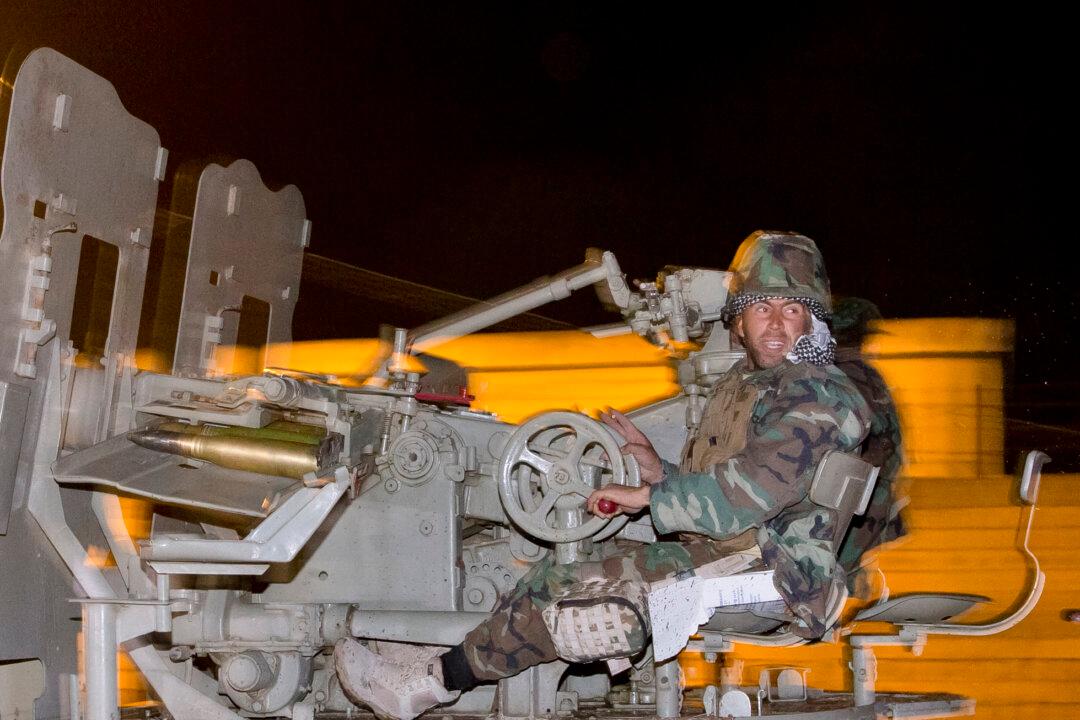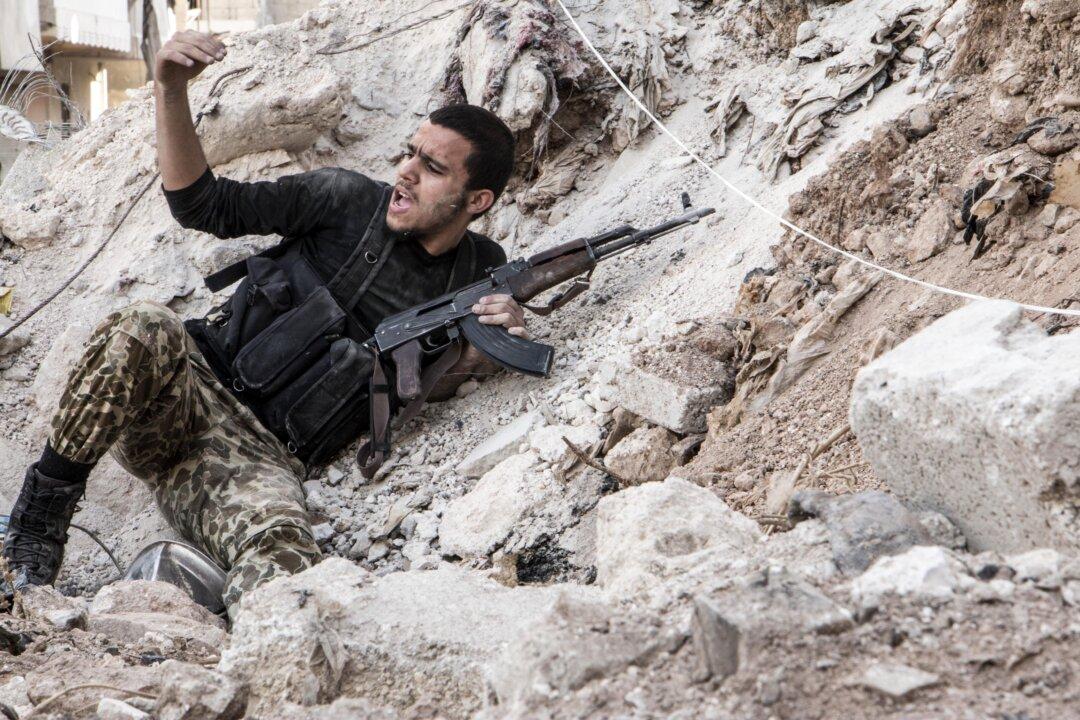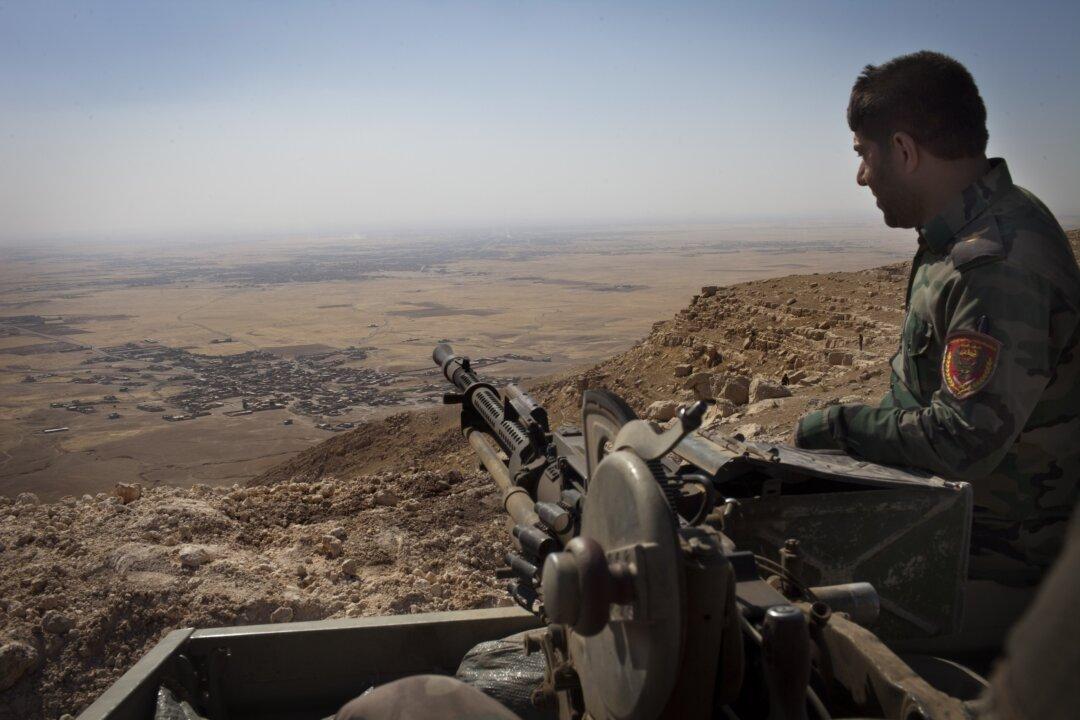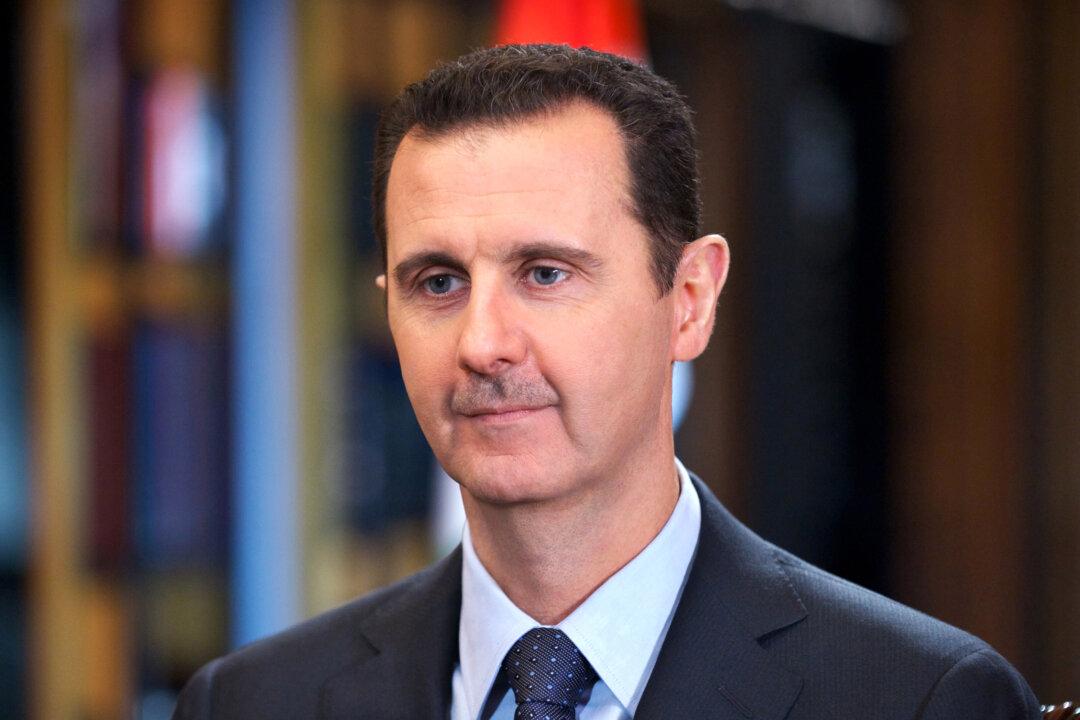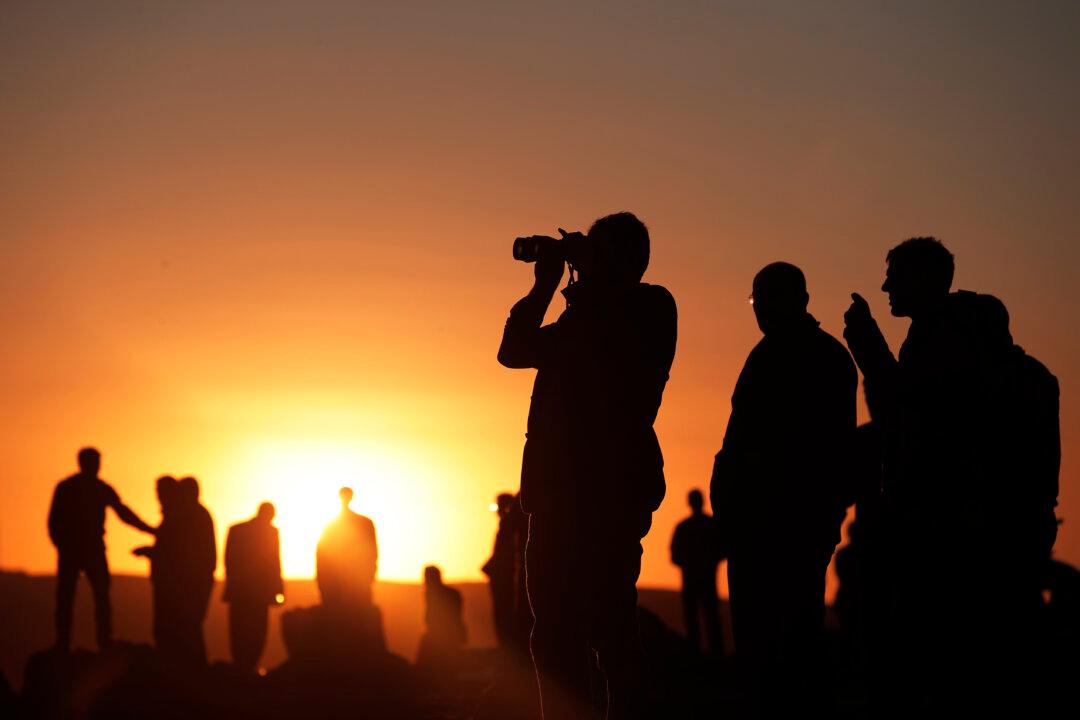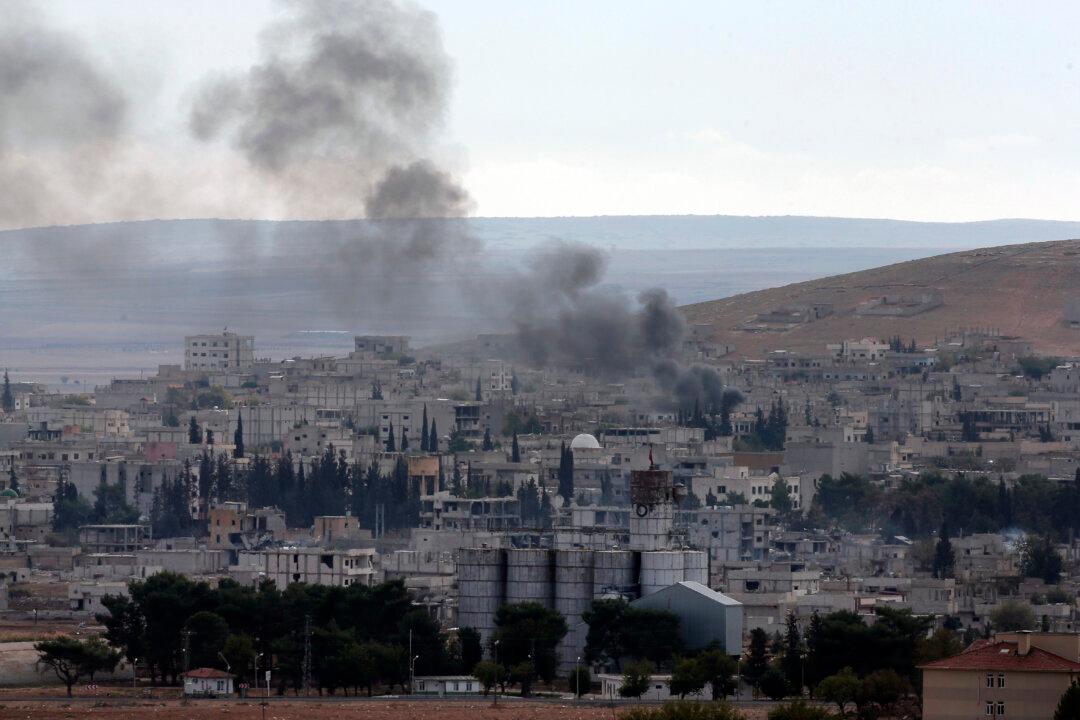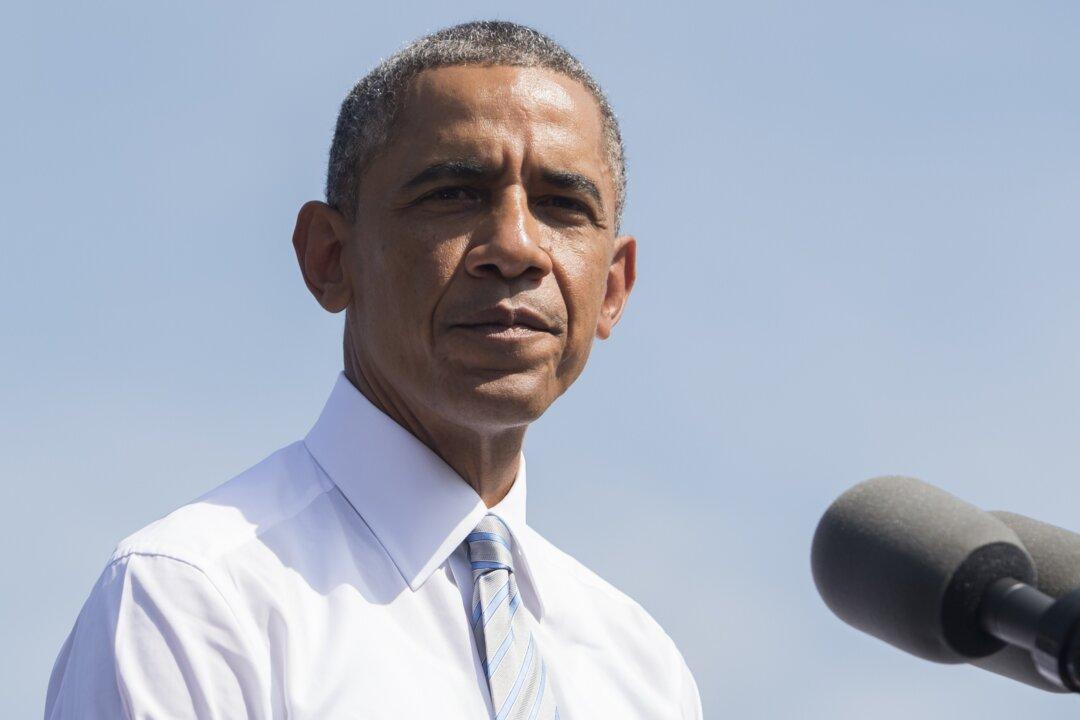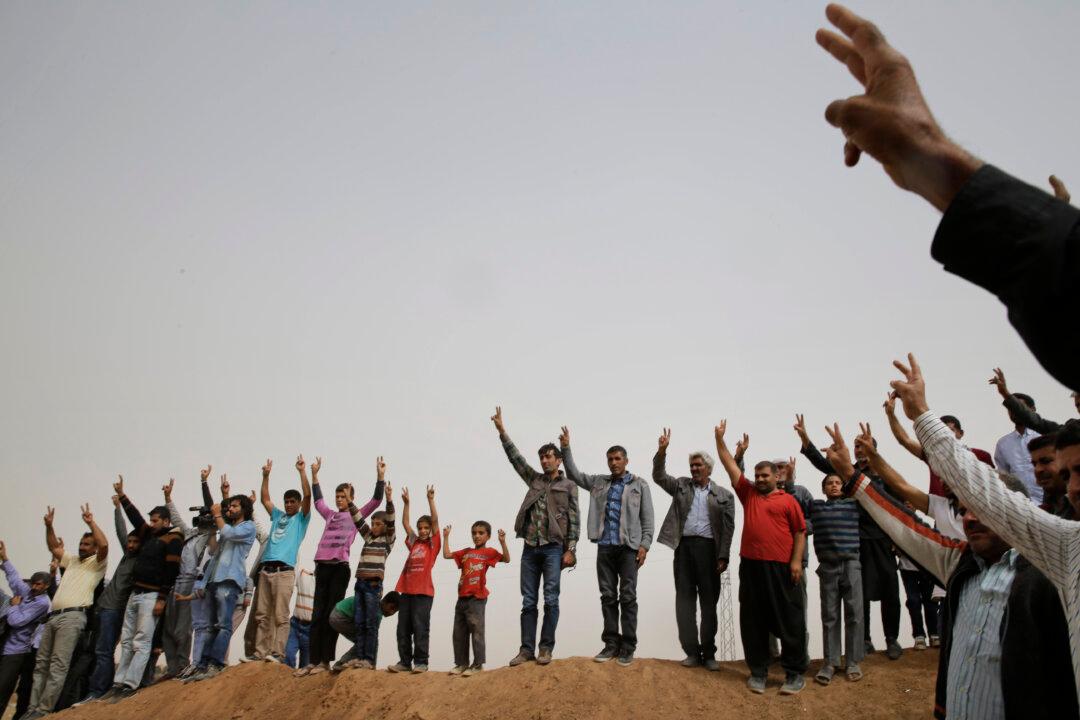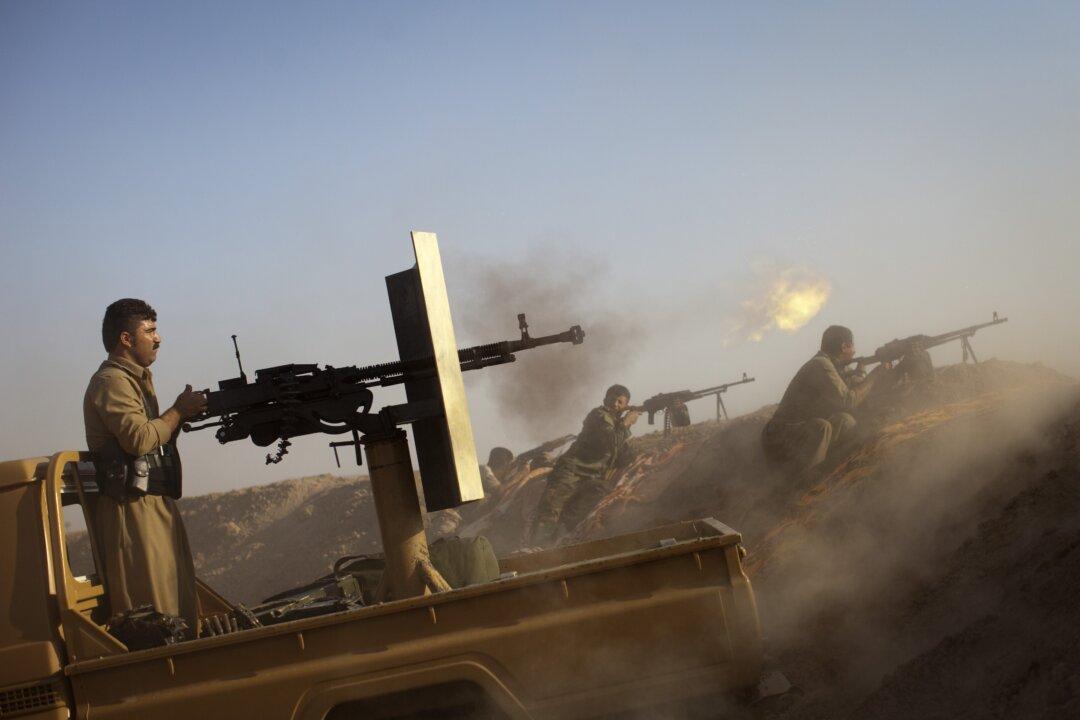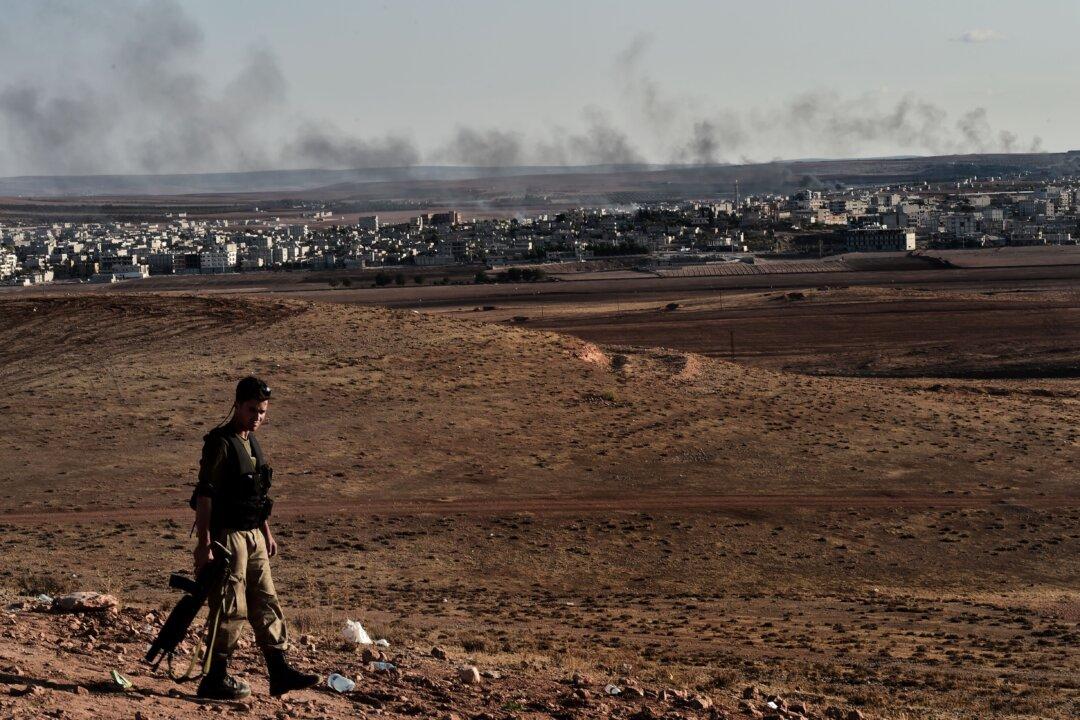Focus
US-led coalition
LATEST
Just How Dangerous Are the Skies Over Syria?
Washington greeted reports of the Russian air force’s first wave of airstrikes on Sept. 30 with fierce rhetoric. Moscow, said Defense Secretary Ash Carter, was “pouring gasoline on the fire” in Syria.
|
What ‘Boots on the Ground’ in Iraq Looks Like
“Most of us who came in after 9/11 have experienced nothing but combat in our careers,” one pararescueman said. “It’s a way of life.”
|
‘It’s a War’: A Look at How the US and Its Allies Are Fighting ISIS
“I’m doing stuff here that I never thought I’d get to do. We’re hunting. And there are very few sorties when you’re not shooting.”—U.S. Air Force major pilot.
|
Canada Rules Out Syria Airstrikes
Canada has no plans to follow its neighbor the United States in expanding airstrikes against the Islamic State group into Syria, the country’s top diplomat said Saturday during a visit to the Middle East.
|
Global Coalition Stepping Up Against Islamic State
Islamic State militants invaded Iraq’s west almost a year ago and overran the nation’s second-largest city in June, threatening death and torture to opponents in their way. But the world has been slow to respond, coming together Wednesday for the first high-level meeting of scores of nations now devoted to destroying the rampant insurgency.
|
West-Backed Syria Rebels Shaken on Multiple Fronts
During a key battle in the rugged mountains of a northern province earlier this month, U.S.-backed Syrian rebels collapsed before an assault by al-Qaeda fighters. Some surrendered their weapons. Others outright defected to the militants.
|
US Gen. Martin Dempsey in Iraq to Assess Campaign
America’s top military leader arrived in Iraq on Saturday on a previously unannounced visit, his first since a U.S.-led coalition began launching airstrikes against the extremist Islamic State group.
|
Pentagon Says More Ground Troops Possible to Fight ISIS
The Pentagon warned Congress on Thursday that the long, drawn-out military campaign against Islamic State militants is just beginning and could expand to include modest numbers of U.S. forces fighting alongside Iraqi troops.
|
Coalition Airstrikes in Syria Have Killed at Least 860
US-led coalition airstrikes against the Islamic State group and other extremists in Syria have killed more than 860 people, including civilians, since they began in mid-September, a monitoring group said Wednesday.
|
Kobani Front: Iraqi Peshmerga Fighters Prepare to Battle ISIS in Syria
An official for the main Syrian Kurdish force says Iraqi peshmerga fighters are getting ready for the battle against Islamic State group extremists in the border town of Kobani.
|
Middle East Alignments: Open Questions
The Syrian crisis and, before it, the Arab uprisings in Tunisia, Libya, Egypt, Yemen, and Bahrain have exposed fault lines not only within the region, but between regional countries and the United States. An understanding of the fractures within the region has benefited from the extensive and largely astute analysis of a range of scholars, who point to sectarian splits along one axis and the divide between conservatives and radicals along another. The fault line between Washington and the regional capitals is harder to assess.
|
Iraqi Kurdish Lawmakers Authorized Its Peshmerga Fighters to Help Syrian Kurds
Lawmakers in Iraq’s largely autonomous Kurdish region Wednesday authorized peshmerga forces to go to neighboring Syria and help fellow Kurds combat Islamic State militants in the key border town of Kobani, providing much-needed boots on the ground.
|
Syrian Leader Exploits Coalition War Against ISIS
Syrian President Bashar Assad is taking advantage of the US-led coalition’s war against the Islamic State group to pursue a withering air and ground campaign against more mainstream rebels elsewhere in the country, trying to recapture areas considered more crucial to the survival of his government.
|
Islamic State Militants Seize US Airdropped Weapons Cache Meant for Kurds
Islamic State group fighters seized at least one cache of weapons airdropped by U.S.-led coalition forces that were meant to supply Kurdish militiamen battling the extremist group in a border town, activists said Tuesday.
|
US-Led Airstrike Kills 8 in ISIS-Held Syrian Town
A US-led coalition airstrike on a gas distribution facility in a stronghold of the Islamic State group set off a series of secondary explosions and killed at least eight people in eastern Syria, activists said Saturday.
|
Obama’s Legacy in the Middle East: Passing the Baton in 2017
In a period of about six weeks spanning August and September 2014, President Obama dramatically revamped his Middle East policy to put degrading and destroying the Islamic State (ISIS) at its center.
|
Hard-Pressed Between Turkey and ISIL, Kurds Essential to Regional Peace
The Kurds of Syria and Iraq have become a major focal point in the war against the Islamic State group, with Kurdish populations in both countries coming under significant threat by the militants’ lightening advance.
|
Kurds Hold Position Against ISIL Advance in Syria
Intensified U.S.-led airstrikes and a determined Kurdish military force on the ground appear to have had some success in halting advances by Islamic State fighters on a strategic Kurdish town near Syria’s border with Turkey — at least for now.
|
Pentagon Names Syria-Iraq Operation: ‘Inherent Resolve’
It may be less punchy than previous nicknames for U.S. conflicts in the Middle East—remember Operation Desert Storm and its thunderous attacks on Saddam Hussein’s occupation army—but the Pentagon has finally named its fight against Islamic State militants in Iraq and Syria: Operation Inherent Resolve.
|
Syrian Kurds Recover Ground Against Islamic State
Bolstered by intensified U.S.-led coalition airstrikes targeting militants from the Islamic State group, Kurdish militiamen fought pitched street battles Wednesday with the extremists in a Syrian Kurdish border town near Turkey, making small advances, activists and officials said.
|
Just How Dangerous Are the Skies Over Syria?
Washington greeted reports of the Russian air force’s first wave of airstrikes on Sept. 30 with fierce rhetoric. Moscow, said Defense Secretary Ash Carter, was “pouring gasoline on the fire” in Syria.
|
What ‘Boots on the Ground’ in Iraq Looks Like
“Most of us who came in after 9/11 have experienced nothing but combat in our careers,” one pararescueman said. “It’s a way of life.”
|
‘It’s a War’: A Look at How the US and Its Allies Are Fighting ISIS
“I’m doing stuff here that I never thought I’d get to do. We’re hunting. And there are very few sorties when you’re not shooting.”—U.S. Air Force major pilot.
|
Canada Rules Out Syria Airstrikes
Canada has no plans to follow its neighbor the United States in expanding airstrikes against the Islamic State group into Syria, the country’s top diplomat said Saturday during a visit to the Middle East.
|
Global Coalition Stepping Up Against Islamic State
Islamic State militants invaded Iraq’s west almost a year ago and overran the nation’s second-largest city in June, threatening death and torture to opponents in their way. But the world has been slow to respond, coming together Wednesday for the first high-level meeting of scores of nations now devoted to destroying the rampant insurgency.
|
West-Backed Syria Rebels Shaken on Multiple Fronts
During a key battle in the rugged mountains of a northern province earlier this month, U.S.-backed Syrian rebels collapsed before an assault by al-Qaeda fighters. Some surrendered their weapons. Others outright defected to the militants.
|
US Gen. Martin Dempsey in Iraq to Assess Campaign
America’s top military leader arrived in Iraq on Saturday on a previously unannounced visit, his first since a U.S.-led coalition began launching airstrikes against the extremist Islamic State group.
|
Pentagon Says More Ground Troops Possible to Fight ISIS
The Pentagon warned Congress on Thursday that the long, drawn-out military campaign against Islamic State militants is just beginning and could expand to include modest numbers of U.S. forces fighting alongside Iraqi troops.
|
Coalition Airstrikes in Syria Have Killed at Least 860
US-led coalition airstrikes against the Islamic State group and other extremists in Syria have killed more than 860 people, including civilians, since they began in mid-September, a monitoring group said Wednesday.
|
Kobani Front: Iraqi Peshmerga Fighters Prepare to Battle ISIS in Syria
An official for the main Syrian Kurdish force says Iraqi peshmerga fighters are getting ready for the battle against Islamic State group extremists in the border town of Kobani.
|
Middle East Alignments: Open Questions
The Syrian crisis and, before it, the Arab uprisings in Tunisia, Libya, Egypt, Yemen, and Bahrain have exposed fault lines not only within the region, but between regional countries and the United States. An understanding of the fractures within the region has benefited from the extensive and largely astute analysis of a range of scholars, who point to sectarian splits along one axis and the divide between conservatives and radicals along another. The fault line between Washington and the regional capitals is harder to assess.
|
Iraqi Kurdish Lawmakers Authorized Its Peshmerga Fighters to Help Syrian Kurds
Lawmakers in Iraq’s largely autonomous Kurdish region Wednesday authorized peshmerga forces to go to neighboring Syria and help fellow Kurds combat Islamic State militants in the key border town of Kobani, providing much-needed boots on the ground.
|
Syrian Leader Exploits Coalition War Against ISIS
Syrian President Bashar Assad is taking advantage of the US-led coalition’s war against the Islamic State group to pursue a withering air and ground campaign against more mainstream rebels elsewhere in the country, trying to recapture areas considered more crucial to the survival of his government.
|
Islamic State Militants Seize US Airdropped Weapons Cache Meant for Kurds
Islamic State group fighters seized at least one cache of weapons airdropped by U.S.-led coalition forces that were meant to supply Kurdish militiamen battling the extremist group in a border town, activists said Tuesday.
|
US-Led Airstrike Kills 8 in ISIS-Held Syrian Town
A US-led coalition airstrike on a gas distribution facility in a stronghold of the Islamic State group set off a series of secondary explosions and killed at least eight people in eastern Syria, activists said Saturday.
|
Obama’s Legacy in the Middle East: Passing the Baton in 2017
In a period of about six weeks spanning August and September 2014, President Obama dramatically revamped his Middle East policy to put degrading and destroying the Islamic State (ISIS) at its center.
|
Hard-Pressed Between Turkey and ISIL, Kurds Essential to Regional Peace
The Kurds of Syria and Iraq have become a major focal point in the war against the Islamic State group, with Kurdish populations in both countries coming under significant threat by the militants’ lightening advance.
|
Kurds Hold Position Against ISIL Advance in Syria
Intensified U.S.-led airstrikes and a determined Kurdish military force on the ground appear to have had some success in halting advances by Islamic State fighters on a strategic Kurdish town near Syria’s border with Turkey — at least for now.
|
Pentagon Names Syria-Iraq Operation: ‘Inherent Resolve’
It may be less punchy than previous nicknames for U.S. conflicts in the Middle East—remember Operation Desert Storm and its thunderous attacks on Saddam Hussein’s occupation army—but the Pentagon has finally named its fight against Islamic State militants in Iraq and Syria: Operation Inherent Resolve.
|
Syrian Kurds Recover Ground Against Islamic State
Bolstered by intensified U.S.-led coalition airstrikes targeting militants from the Islamic State group, Kurdish militiamen fought pitched street battles Wednesday with the extremists in a Syrian Kurdish border town near Turkey, making small advances, activists and officials said.
|

